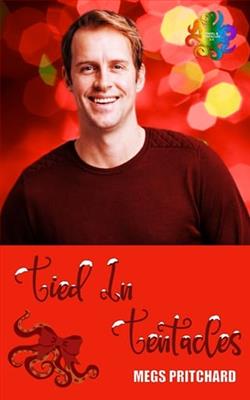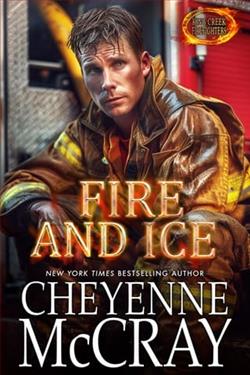Page 34 of Code Red
“Yes. And in Syria, the price is cheap.”
As they progressed deeper into the city, the stone and concrete buildings got larger and the destruction more selective. Virtually everything was damaged from the war, but now collapsed buildings shared space with ones that were more or less intact. Many streets had been cleared and previously empty lots were filled with concrete debris blooming with rebar.
Eventually, signs of permanent human habitation also began to reveal themselves. Families weaving purposefully through the streets. Circles of illumination fed by jury-rigged cables. Vendors knocking off for the night and pushing their carts to wherever home was now.
“Saraqib is somewhat disputed territory,” Faadin continued. “Technically, it’s held by the Syrian government, but only barely. They keep a low profile, and the Russians stay out. It is a powder keg waiting for a spark to ignite it.”
“But relatively neutral.”
“Yes. I would use the analogy of two men standing in the middle of a minefield. No matter how much they hate each other, both recognize a fistfight is in no one’s best interest.”
“And the people we’re meeting share that philosophy?” Rapp said. “Everyone understands that this is just an informal get-together to lay groundwork for talks? I’m just a messenger and that message is cooperation.”
“All explained,” Faadin assured him.
The building they pulled up to didn’t have much to set it apart from all the others on the narrow street. Consisting of five levels, the first four had suffered serious damage, with missing walls that exposed the slabs and pillars that kept it precariously upright. The top floor appeared to be in somewhat better shape, but the tenuous light made it difficult to pick out detail.
Rapp stepped out and Faadin did the same, followed by his three bodyguards in the back.
“One man on each of the first three floors,” he said in Arabic that Rapp pretended not to understand. “We agreed that the fourth would remain empty. I’ll go with Fournier to the fifth.”
His men retrieved their assault rifles and started across the street. Rapp followed, but moved slowly, searching the buildings around them. Faces peeked from empty windows, around corners, and through tattered tarps. The rhythm of the city had been broken and its inhabitants were taking notice. Their lives depended on the détente they’d managed to form, and all would be aware of how delicate it was.
“The name of the man we’re here to meet is Rahim Suleiman,” Faadin said as they entered. “He has an equal number of men as we do. Don’t be alarmed. It was part of our agreement.”
They found the first one just inside. Despite being little more than a shadow, he looked serious and was holding an AK-47. One of Faadin’s men stopped near him and they did their best to stare each other down—but no more than that. Not yet.
What was left of the concrete staircase hung largely unsupportedand was covered in graffiti shouting out to the various factions controlling the city. They left men to counter Suleiman’s on the second and third floors before climbing to the fourth. It was little more than an open deck with barely enough structural support to keep it from collapsing. At first glance the space appeared to be empty, and Faadin didn’t seem interested in confirming that impression. His gait became increasingly jerky as they ascended the last set of steps, nerves fraying with each one.
The top floor had various sections of missing wall, but the roof was more or less intact. Before crossing the rubble-strewn expanse, Rapp paused to smooth the suit he’d worn for the occasion. It was impeccably tailored and the dress shoes Losa’s cobbler had made continued to perform beyond all expectation. Not only did they look good enough to bring a tear to Claudia’s eye, but they also possessed a sole that was both grippy and silent on every surface he encountered. Confidence-inspiring, but hopefully only the aesthetics and not the performance would be tested today.
Ahead, a heavy blanket hung in place of a missing door. Light from inside bled around the edges, dim enough to be barely visible even to the dark-adjusted eye.
“It’ll be over soon,” Rapp whispered as he coaxed Faadin forward. “Maybe Mr. Losa could make a nice donation to your museum. A couple of million euros ought to get it up and running again.”
The possibility seemed to fortify the former academic and he called out in English when they were still fifteen away. “Rahim! It’s me. Ismail. We’re outside.”
“Enter!” came the shouted answer.
They pushed through the blanket into a room that was smaller than Rapp expected, but contained only two men, as had been negotiated. One had an AK and a scarf-covered face, while the other was wearing a threadbare suit and sitting at a low table with an empty stool in front of it. Light was provided by a single candle that was also warming a teapot.
“It’s a pleasure to meet you, Mr. Fournier,” the man said,standing and offering his hand. His accent was thick enough to be nearly incomprehensible, adding another layer of complexity to what Rapp was there to do.
“Mr. Suleiman,” Rapp said pleasantly, taking the man’s hand in a firm but not overly domineering grip. “Likewise.”
“Please! You sit.”
Rapp nodded his thanks and took the stool offered. He’d never been particularly good at these kinds of interactions. In his experience a bullet to the kneecap tended to move things along faster than a pot of tepid tea.
Despite that, he accepted a cup with over-the-top gratitude.
Behind him Faadin put a hand near his gun and moved to what a museum curator would consider a strategic position.
“I appreciate you agreeing to meet with me,” Rapp started. “Mr. Losa believes that we can put any misunderstandings behind us and create a profitable relationship.”
The man leaned forward a bit, taking a few beats to decipher Rapp’s words. “You want to talk to people very powerful, yes? Why? We have much respect for Mr. Losa. But my bosses are very shy. You must understand, yes?”
Rapp reached into his jacket, moving slowly enough to not concern the man with the AK. His hand reappeared a moment later with a pack of cigarettes and a silver lighter. Technically, he didn’t smoke, but in Arab countries with limited access to quality tobacco, it was a surprisingly effective bonding strategy. He offered one and leaned over the tiny table to light it before taking a second for himself.















